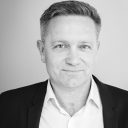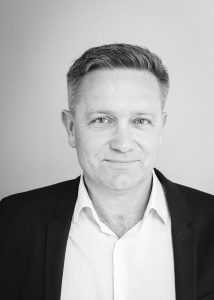Through working in philanthropy for over 50 years, we at the BMW Foundation have come to see the commitment of leaders as a unique lever to drive positive and sustainable change. While the prevailing leadership paradigm has led humanity to undoubted success in various fields, it has also sustained ideas of control, exploitation, competition and linear, short-term thinking. We can’t solve the problems we face today with the same mindsets and practices that created them. We need another type of leadership: Responsible Leadership.
The Responsible Leaders Network of the BMW Foundation Herbert Quandt unites almost 2,500 Responsible Leaders in more than 100 countries, organised by region. Our role as an organisation is to offer opportunities for the development of the network by facilitating interactions and exchanges among Responsible Leaders and broader ecosystems. We aim to be a platform where connections develop, grow, and lead to impact.
What is Responsible Leadership?
Responsible Leaders see social, political and environmental challenges in a larger context. They are guided by a deep respect for other people, their background, identity, and dignity. They come from all sectors and they intentionally engage in the transformation of the prevailing socio-economic model from extractive to regenerative in line with the United Nations 2030 Agenda and its 17 Sustainable Development Goals (SDGs).
Introduced in 2015, the United Nations Sustainable Development Goals (SDGs) have become a universal framework, setting ambitious targets to create a more just and equitable future by 2030. These goals recognise the interdependence between social, economic, and environmental factors, emphasising the need for holistic approaches to problem-solving which will require the collaboration and commitment of governments, businesses, civil society, and individuals worldwide. By combining forces, greater impact and progress can be achieved on multiple fronts simultaneously.
This is the context in which the BMW Foundation Herbert Quandt is promoting Responsible Leadership and inspiring leaders worldwide to contribute to a more peaceful, just, and regenerative future. We catalyse organizations, communities, and movements through the BMW Foundation Responsible Leaders Network, a global community that drives system change. Through our programmes, we aim to lead by example: by investing, amplifying, and supporting the implementation of innovative solutions that advance the Sustainable Development Goals of the UN 2030 Agenda.
Some examples:
For many years, the BMW Foundation has collaborated with the American non-profit organisation B Lab, which promotes companies meeting sustainability, transparency, and responsibility standards by awarding the B Corp certification. So-called B Corporations (B Corps) aim to balance purpose and profit, adding value to society by considering governance, employee relations, communities and the environment. Nearly half of all B Corps are located in the United States and Canada, but the fastest growing region is Latin America where Sistema B – the adaptation of the B Corp movement for Latin America – was initiated in 2012. We became a strategic partner early on and have worked to support the development of Sistema B, especially in the continent’s biggest country, Brazil. ‘The BMW Foundation has been a key player in developing an ecosystem for an impact economy in Latin America,’ says Responsible Leader Marcel Fukuyama, president of Sistema B Brazil. ‘Starting by seeding the B Corp movement in Brazil, the Foundation has resourced the whole region through a network of Responsible Leaders and has supported Sistema B in building a global community of people using business as a force for good.’
If we really want to overcome borders, overcome religious and cultural conflicts, we also have to find secular forms of language for all this. In our case this means aligning with United Nations 2030 Agenda.
Another example is BMW Foundation Responsible Leader Thandi Dyani, who dedicates herself to racial justice and gender equality by investigating white feminism in the Nordic countries and its failure to reflect on intersectionality. Living between Denmark and South Africa, the self-described feminist woman, mother, and wife works as an equity, diversity and belonging (EDB) consultant and advisor, board member, and mentor. She draws attention to the fact that white women do not yet see their roles to lead, think and act through an intersectional lens. Or, in the words of writer and activist Rachel Cargle: ‘If there is not the intentional and action-based inclusion of women of color, then feminism is simply white supremacy in heels.’ Through reflecting on the unique features of racism in Nordic countries, which she herself calls the ‘Nordic Denial’, Thandi Dyani explains how oppressive structures are reproduced while trying to find solutions to reduce inequalities (SDG 10) and promote intersectional feminist leadership.
The BMW Foundation also supports individuals and institutions that are working to achieve SDG 16 — Peace, Justice, and Strong Institutions — especially to strengthen democratic institutions. Düzen Tekkal, born in 1978 in Hanover with Kurdish roots and part of the Yazidi faith community, works as a journalist, author, filmmaker, human rights activist, and war reporter with a focus on Syria and Iraq. She is the chairwoman of the NGO HÁWAR.help and founder and CEO of the educational initiative German Dream. In her opinion, everything that she and her sisters does with HÁWAR.help has to do with their history of oppression and how they resist and build lives on the ashes of a genocide. ‘If you have a story like that, you can’t transform the world without transforming yourself in the process.’ As she tells it, her encounter with the BMW Foundation and its network was the first time in her life that she felt she was no longer alone. ‘You gave me and the people I work with at HÁWAR.help a home when we felt homeless. I mean that emotionally. I mean it ideally. And I mean it territorially. We didn’t have an office, but we were allowed to work here with you in the Foundation’s Berlin office with a view of the German Chancellery. That means something.’
Agreeing on something bigger
The secret of the bond we create between people is that it’s basically not just related to dialogue but that it happens through aligning ourselves with the Sustainable Development Goals – just like religions align themselves with the transcendental. That means that this deep transformation of people and the new forms of collaboration and cooperation don’t just emerge from dialogue-related transactions; they take on something bigger because first we need to agree together on something bigger. That’s the real secret, that’s the religious treasure we’re basically secularizing here. If we really want to overcome borders, overcome religious and cultural conflicts, we also have to find secular forms of language for all this. In our case this means aligning with United Nations 2030 Agenda.
Markus Hipp is a member of the Board of the BMW Foundation Herbert Quandt




Comments (0)